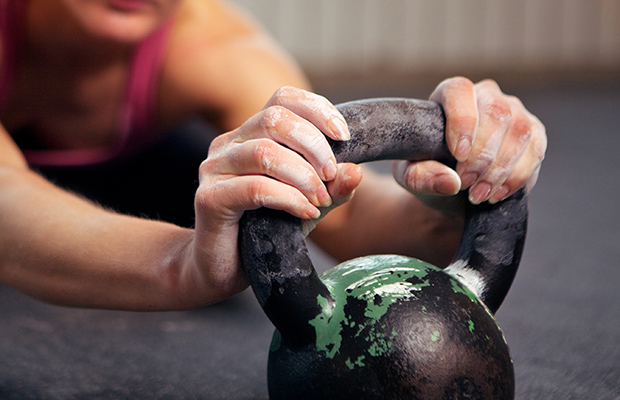
You’ve probably read about the germs lurking on your cell phone. And we’ve all heard about the icky stuff contaminating the surfaces of our desks. But could your favorite cardio and weight machines be breeding grounds for infectious organisms, too? (Sorry, germaphobes!)
If you’re not always vigilant about wiping down your elliptical machine, or yoga mat (and who is, really?), we’re here to set the record straight on what’s really going on with the germs at your gym.
RELATED: Are You Crazy for Working Out While Sick?
3 Things You Need to Know About the Germs at Your Gym
1. Some gyms are cleaned much less frequently than others.
Here’s a dirty secret: Some gyms are cleaned seven times less frequently than others, according to one professional gym cleaning service. Why? “Generally speaking, the larger gyms might not outsource more frequently,” he says. “That’s not to say that the [gym] staff isn’t keeping it up in the interim. But it’s really a budgetary thing.” says Brad Wallace, president and owner of Jan-Pro Cleaning Systems of Greater New York, a cleaning service that works with over 20 fitness facilities in and around New York City.
While Wallace isn’t naming names, he does share that boutique fitness companies are often under more pressure to wow customers during each and every visit — which often means these spaces have to prioritize cleanliness. Plus, these pricey studios often have bigger budgets, too, says Wallace. Jan-Pro cleans some facilities five to seven times a week, while other facilities only get a professional scrub down once or twice a week.
RELATED: Sweating Out the Sadness: Can Exercise Help You Grieve?
Dr. Tanya Altmann, an assistant clinical professor at Mattel’s Children’s Hospital at UCLA who’s in partnership with Clorox, recommends scoping out your gym’s cleanliness by scanning to see if there are fingerprints or sweat marks on equipment and counters. Observe the environment and make sure you see people actively cleaning the gym space and locker rooms while you’re there.
2. The flu virus can lurk on your treadmill for up to 8 hours.
Your spin bike might seem like it harbors fewer germs than say, a public restroom, but when you think about the fact that you’re wiping sweat off your face — and touching the equipment — it’s not such an innocent space. “These are viruses you can catch anywhere, and the gym is no exception,” says Altmann. “Any surface can harbor germs, especially equipment that is touched by a lot of people.” Think weights, doorknobs, faucet handles, water fountains and machine touchscreens.
RELATED: Which Vaccines Should You Get as an Adult?
Unfortunately, germs hang around way longer than that creepy guy flexing in front of the mirrors. According to the Center for Disease Control and Prevention, the flu virus can live on surfaces for two to eight hours. (Meaning: Someone might have contaminated your treadmill hours before you stepped on it.) Sure, you can clean your equipment with whatever’s available, but “wipes can vary from gym to gym,” Altmann says. So she recommends bringing your own to swab down benches, free weights and machines before and after you use them.

3. Germs spread more easily when people are sweating.
“Sweaty environments can be a breeding ground for many germs, including bacteria such as staph [a common skin infection] and fungus such as athlete’s foot,” Altmann says. While these bacteria can live on the skin and cause no problems, they can get into minor cuts and then cause an infection.
Her pro tip: Don’t dry off your machine and your face with the same towel. Using different towels will ensure you won’t touch your eyes, nose and mouth with the germs a towel might have picked up off your machine.
Yoga lovers, your mats aren’t safe, either. If you’ve been doing sun salutations barefoot (or working out sans shoes in a place that isn’t your living room), Altmann recommends washing your feet as well as your hands when you’re all done. “Otherwise you’re taking those germs with you!” says Altmann.
Luckily, there’s an easy way to keep yourself germ-free post sweat session: Simply take a shower! And when you can’t hit the showers, stat — washing your hands with soap and warm water for 30 seconds reduces bacterial count by 99.9 percent. Your immune system will thank you later.
